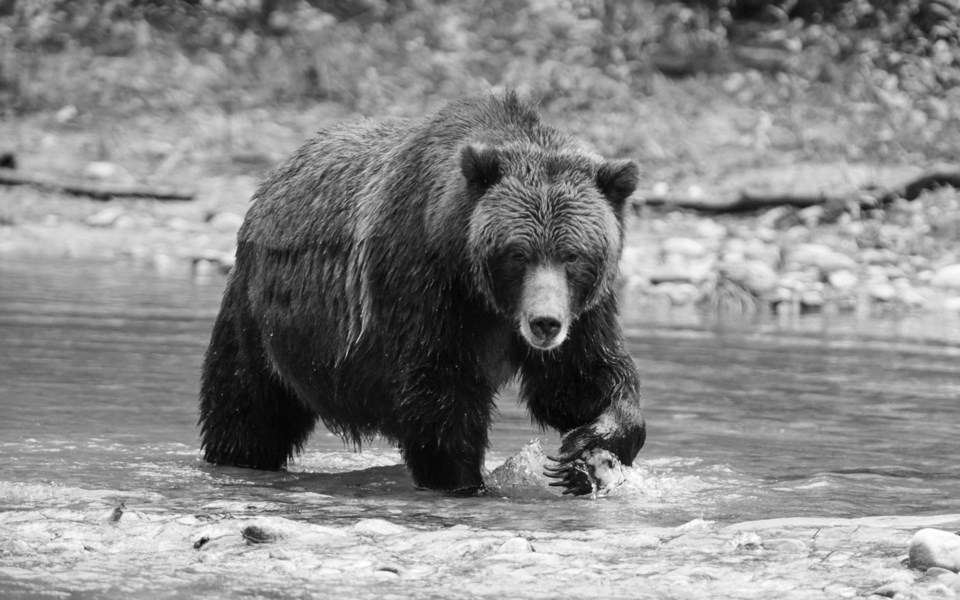B.C.'s auditor general has a message for the province when it comes to grizzly bear conservation: You've largely failed and it's time to get your act together.
In a scathing report released Thursday, Oct. 26, Auditor General Carol Bellringer said the province has not enacted its Grizzly Bear Conservation Strategy, a strategy the province committed to in 1995.
Bellringer blamed a lack of coordination between the Ministry of Environment (MoE) and the Ministry of Forests/Ministry of Lands and Natural Resource Operations (MFLNRO).
"We expected that these two (bodies) would be managing B.C.'s grizzly bear populations co-operatively and effectively... However, government created an unclear organization structure for wildlife management.
"This makes it difficult for MoE to deliver on its mandate," wrote Bellringer.
Grizzles are thought to be in healthy numbers in some regions of B.C., while struggling in others.
According to the province, there are 15,000 grizzly bears across 90 per cent of their historic range.
Bellringer said that while the government has taken some measures to protect grizzlies, it has failed to identify and secure key grizzly bear habitats and create a comprehensive grizzly bear management plan, including for the North Cascades.
There is no "organized inventory and limited monitoring" of specific grizzly bear populations, she said.
The report is clear that the big danger to grizzlies is habitat loss, not hunting.
The province has been developing extremely quickly without adequate concern for how logging roads cut up bear territory, it says.
There are some 600,000 kilometres of resource roads in B.C., with an estimated 10,000 km added each year.
"This expansion allows greater human access into wilderness areas, which results in increased illegal killing of grizzly bears, and greater human-bear conflicts. Yet, long-promised resource road legislation that could address this risk is not yet in place," said Bellringer.
She put forward 10 recommendations to improve government management of grizzly bear populations.
These include a call for government to clarify the roles and responsibilities of the MoE and the MFLNRO, and the development of an "adequately resourced inventory and monitoring strategy for grizzly bears."
The province said it's committed to implementing all of Bellringer's recommendations and is in the process of developing a grizzly bear management plan.
"We are going to develop, as the auditor general recommends, a provincial grizzly bear management plan," explained Doug Donaldson, MFLNRO minister, in a conference call.
"As the auditor general points out, degraded habitat is the major risk to grizzly bears," he said.
George Heyman, MoE minister, said that B.C. could expect more conservation officers.
"We have seen over the last decade and a half a significant decrease in what many people refer to as boots on the ground," he said, promising more money for conservation services.
For Johnny Mikes — field director of Coast to Cascades Grizzly Bear Initiative — the auditor general's report came as welcome news.
"It was really on the mark in terms of how it focused on habitat issues as the primary threat to grizzly bears. We thought the recommendations were really solid," he said.




